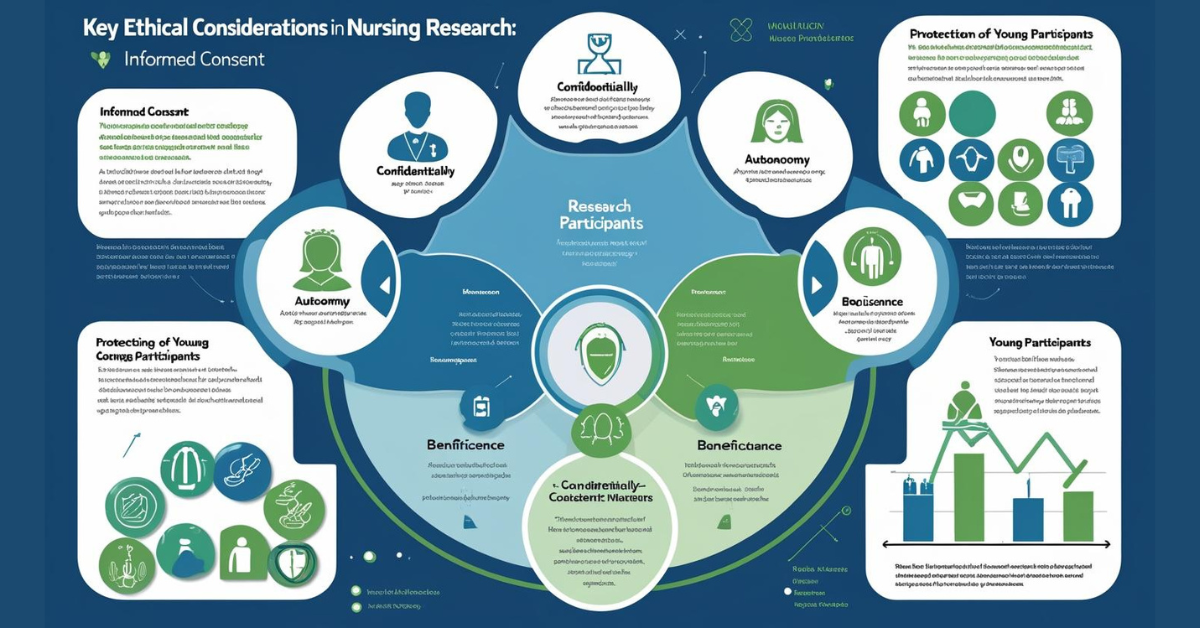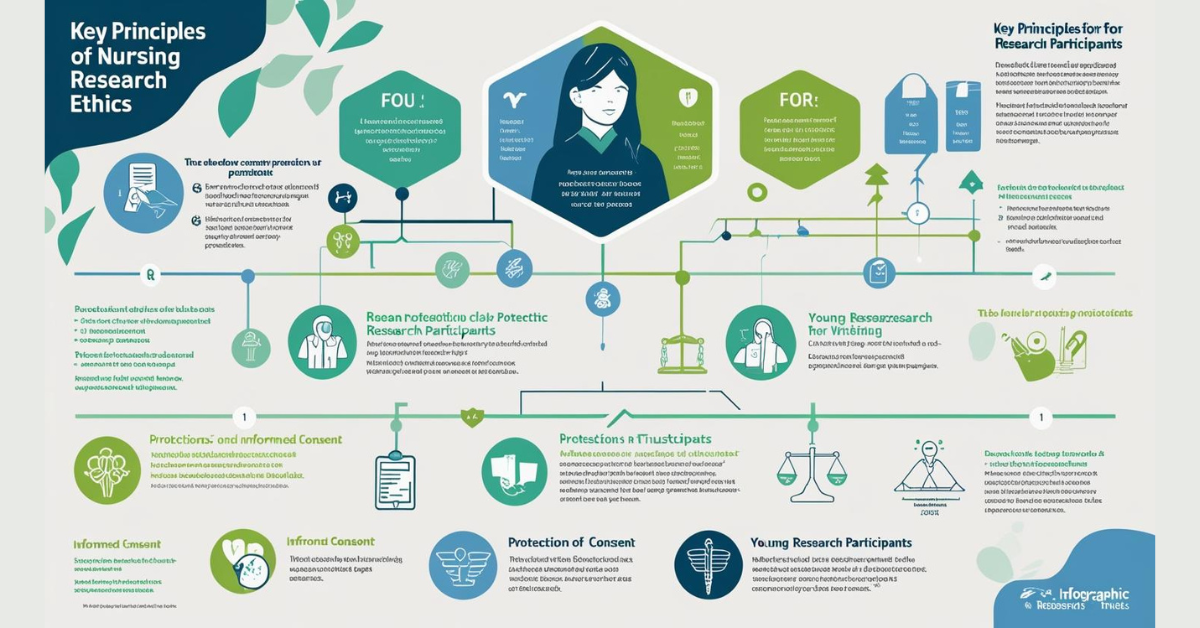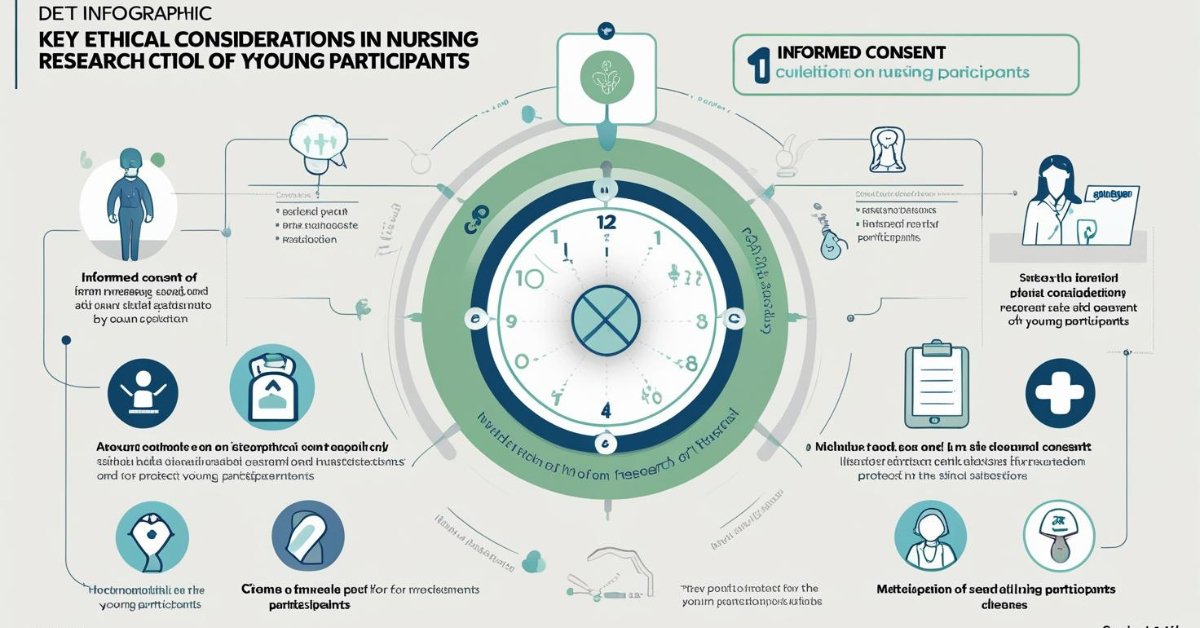The Nursing Research Ethics Decoded from Informed Consent to Protecting Research Young Participants. The protection of vulnerable populations, especially young participants, requires parental or guardian consent and the informed consent of the child. Age-appropriate communication methods must be used to ensure understanding and protect their developing autonomy.
How Nursing Research Ethics Decoded from Informed Consent to Protecting Research Young Participants
The Growing Awareness of Moral Issues
Developments in the field of social science in recent years have been accompanied by a growing awareness of the attendant moral issues implicit in the work of social researchers and of their need to meet their obligations with respect to those involved in, or affected by, their investigations. This awareness, focusing chiefly, but by no means exclusively, on the subject matter and methods of research in so far as they affect the participants, is reflected in the growth of relevant literature and in the appearance of regulatory codes of research practice formulated by various agencies and professional bodies.
Complexity of Ethical Concerns in Educational Research
Ethical concerns encountered in educational research can be extremely complex and subtle and can frequently place researchers in moral predicaments which may appear quite unresolvable. One such dilemma is that which requires researchers to strike a balance between the demands placed on them as professional scientists in pursuit of truth, and their subjects’ rights and values potentially threatened by the research. This is known as the ‘costs/benefits ratio’, the essence of which is outlined by Frankfort-Nachmias and Nachmias (1992) and is a concept we return to later in the in this and coming when we consider how ethical dilemmas arise from various sources of tension.
Challenge of Practical Application
It is a particularly thorny dilemma because, as Aronson et al. (1990) note, it cannot be shrugged off either by making pious statements about the inviolability of human dignity or by pledging glib allegiance to the cause of science. Most standard textbooks on ethics in social research would, in this case, advise researchers to proceed ethically without threatening the validity of the research endeavor in so far as it is possible to do so. Conventional wisdom of this kind is admirable in its way, but the problems for researchers can multiply surprisingly when the principle comes to be applied: when they move from the general to the, from the abstract to the concrete.
Research as Unpredictable Ethical Territory
Each research undertaking is different, and investigators may find that on one occasion their work proceeds smoothly without the Hydra-headed creature of ethical concern breaking surface. At another time, they may come to realize that, suddenly and without prior indication, they are in the middle of an ethical mine field, and that the residual problems of a technical and administrative nature that one expects as a matter of course when pursuing educational research are compounded by unforeseen moral questions.
Sources of Ethical Issues in Research
Ethical issues may stem from the kinds of problems investigated by social scientists and the methods they use to obtain valid and reliable data. In theory at least, this means that each stage in the research sequence may be a potential source of ethical problems.
Thus, they may arise from the nature of the research project itself (ethnic differences in intelligence, for example); the context for the research (a remand home); the procedures to be adopted (producing high levels of anxiety); methods of data col lection (covert observation); the nature of the participants (emotionally disturbed adolescents); the type of data collected (highly personal in formation of a sensitive kind); and what is to be done with the data (publishing in a manner that causes the participants embarrassment).
Our initial observations would seem to indicate that the subject of ethics in social research is potentially a wide-ranging and challenging one. Al though what follows offers advice and guidance in liberal amounts drawn from the work of seasoned researchers and from a range of empirical studies, we do not intend to be unduly prescriptive or prescriptive. As we suggested in our opening comments, each research undertaking is an event sui generis, and the conduct of researchers cannot be, indeed should not be, forced into a procrustean system of ethics.
Spectrum of Ethical Possibilities
When it comes to the resolution of a specific moral problem, each situation frequently offers a spectrum of possibilities. In what follows, we have indulged in a certain amount of repetition without, we hope, being repetitious. This has advantages since some of the ideas discussed are multi-faceted and their reappearance in different contexts may assist greater understanding. From what we have said so far, we hope that we will be seen as informants rather than arbiters, and that our counsels will be perceived as markers and signposts in what for many readers will be a largely unexplored terra incognita.
Aspects to be Covered
It is in this spirit that we review seriatim the problems of access to the research setting; the nature of ethics in social research generally; sources of tension in the ethical debate; problems and di lemmas confronting the researcher, including matters of privacy, anonymity, confidentiality, betrayal and deception; ethical problems endemic in particular research methods; ethics and teacher evaluation; regulations affecting research; and a final word on personal codes of practice. Before this, however, we examine another fundamental concept which, along with the costs/benefits ratio, contributes to the bedrock of ethical procedure—that of informed consent.
Informed Consent
The Necessity of Consent and Cooperation
Much social research necessitates obtaining the consent and co-operation of subjects who are to assist in investigations and of significant others in the institutions or organizations providing the research facilities. In some cultures, informed consent is essential whenever participants are exposed to substantial risks or asked to forfeit personal rights. Writing of the situation in the USA, for instance, Frankfort Nachmias and Nachmias say: When research participants are to be exposed to pain, physical or emotional injury, invasions of privacy, or physical or psychological stress, or when they are asked to surrender their autonomy temporarily (as, for example, in drug research), informed consent must be fully guaranteed.
Participants should know that their involvement is always voluntary, and they should receive a thorough explanation beforehand of the benefits, rights, risks, and dangers involved because of their participation in the research project. (Frankfort-Nachmias and Nachmias, 1992).
Principle of Freedom and Self-Determination
The principle of informed consent arises from the subject’s right to freedom and self-determination. Being free is a condition of living in a democracy and when restrictions and limitations are placed on that freedom they must be justified and consented to, even in research proceedings. Consent thus protects and respects the right of self-determination and places some of the responsibility on the participant should anything go wrong in the research. Another aspect of the right to self-determination is that the subject has the right to refuse to take part, or to withdraw once the research has begun (see Frankfort Nachmias and Nachmias, 1992). Thus, informed consent implies informed refusal.
Four Essential Elements of Informed Consent
Informed consent has been defined by Diener and Crandall as ‘the procedures in which individuals choose whether to participate in an investigation after being informed of facts that would be likely to influence their decisions’ (Diener and Crandall, 1978). This definition involves four elements: competence, voluntarism, full information and comprehension.
Competence
‘Competence’ implies that responsible, mature individuals will make correct decisions if they are given the relevant information. It is incumbent on re searchers to ensure they do not engage individual’s incapable of making such decisions either because of immaturity or some form of psycho logical impairment.
Voluntarism
‘Voluntarism’ entails applying the principle of informed consent and thus ensuring that participants freely choose to take part (or not) in the research and guarantees that exposure to risks is undertaken knowingly and voluntarily. This element can be problematic, especially in the field of medical research when unknowing patients are used as guineapigs.
Full Information
‘Full information’ implies that consent is fully informed, though in practice it is often impossible for researchers to inform subjects on everything, e.g. on the statistical treatment of data; and, as we shall see below, on those occasions when the researchers themselves do not know everything about the investigation. In such circumstances, the strategy of reasonably informed consent has to be applied.
Comprehension
‘Comprehension’ refers to the fact that participants fully understand the nature of the research project, even when procedures are complicated and initial risks. Suggestions have been made to ensure that subjects fully comprehend the situation they are putting themselves into, e.g. by using highly educated subjects, by engaging a consultant to explain difficulties or by building into the research scheme a time lag between the request for participation and decision time.
When Informed Consent Is Not Absolute
If these four elements are present, researchers can be assured that subjects’ rights will have been given appropriate consideration. As Frankfort-Nachmias and Nachmias note, however: The principle of informed consent should not… be made an absolute requirement of all social science research. Although usually desirable, it is not necessary to study where no danger or risk is involved. The more serious the risk to research participants, the greater the obligation becomes to obtain informed consent. (Frankfort-Nachmias and Nachmias, 1992)
Research Methods Where Consent Is Impossible
It must also be remembered that there are some research methods where it is impossible to seek informed consent. Covert observation, for example, as used in Patrick’s study of a Glasgow gang or experimental techniques involving deception, as in Milgram’s Obedience-to-authority experiments, would, by their very nature, rule out the option. And, of course, there may be occasions when problems arise even though consent has been obtained.
Burgess (1989a), for example, cites his own research in which teachers had been informed that research was taking place but in which it was not possible to specify exactly what data would be collected or how they would be used. It could be said, in this case, that individuals were not fully informed, that consent had not been obtained, and that privacy had been violated.
The Foundation for Ethical Relationships
As a rule, however, informed consent is an important principle to abide by and the fact that moral philosophers have joined in the debate engendered by the concept is testimony to the seriousness with which it is viewed (Soble, 1978). It is this principle that will form the basis, so to speak, of an implicit contractual relationship between the researcher and the researched and will serve as a foundation on which subsequent ethical considerations can be structured.
Special Considerations for Research with Children
The Power Differential Challenge
From our remarks and citations so far on this subject of informed consent, we may appear to be assuming relationships between peers—re searcher and teachers, for example, or research professor and post-graduate students; and this assumption would seem to underpin many of the discussions of an ethical nature in the research literature generally. Readers will be aware; however, that much educational research involves children who cannot be regarded as being on equal terms with the researcher, and it is important to keep this in mind at all stages in the research process including the point where informed consent is sought.
Addressing Asymmetric Relationships
In this connection we refer to the important work of Fine and Sandstrom (1988), who’s ethnographic and participant observational studies of children and young people focus, among other issues, on this asymmetry with respect to the problems of obtaining informed consent from their young subjects and explaining the research in a comprehensible fashion. As a guiding principle they advise that while it is desirable to lessen the power differential between children and adult researchers, the difference will remain, and its elimination may be ethically inadvisable.
Two-Stage Process for Minors
It may be of some help to readers if we refer briefly to other aspects of the problem of informed consent (or refusal) in relation to young, or very young, children. Seeking informed consent about minors involves two stages. First, researchers consult and seek permission from those adults responsible for the prospective subjects; and second, they approach the young people themselves. The adults in question will be, for example, parents, teachers, tutors, psychiatrists, youth leaders, or team coaches, depending on the research context.
The point of the research will be explained, questions invited and permission to proceed to the next stage sought. Objections, for whatever reason, will be duly respected. Obtaining approval from relevant adults may be more difficult than in the case of the children, but at a time of increasing sensitivity to children’s welfare it is vital that researchers secure such approval.
Guidelines for Seeking Children’s Consent
It may be useful if, in seeking the con sent of children, researchers bear in mind the provisory comments below. While seeking children’s permission and cooperation is an automatic part of quantitative research (a child cannot unknowingly complete a simple questionnaire), the importance of informed consent in qualitative research is not always recognized.
Speaking of participant observation, for example, Fine and Sandstrom say that researchers must provide a credible and meaningful explanation of their research intentions, especially in situations where they have little authority, and that children must be given a real and legitimate opportunity to say that they do not want to take part.
Respecting Children’s Refusal
The authors advise that where subjects do refuse, they should not be questioned, their actions should not be recorded, and they should not be included in any book or article (even under a pseudonym). Where they form part of a group, they may be included as part of a collectivity. Fine and Sandstrom consider that such rejections are sometimes a result of mistrust of the researcher. They suggest that at a later date, when the researcher has been able to establish greater rapport with the group, those who refused initially may be approached again, perhaps in private.
Special Groups Requiring Additional Consideration
Very Young Children
Two groups of children require special mention: very young children, and those not capable of deciding. Researchers intending to work with pre-school or nursery children may dismiss the idea of seeking informed con sent from their would-be subjects because of their age, but Fine and Sandstrom would recommend otherwise. Even though such children would not understand what research was, the author’s ad vise that the children be given some explanation. For example, one to the effect that an adult will be watching and playing with them might be sufficient to provide a measure of informed consent consistent with the children understand.
Age-Appropriate Rights and Understanding
As Fine and Sandstrom comment: Our feeling is that children should be told as much as possible, even if some of them cannot understand the full explanation. Their age should not diminish their rights, although their level of understanding must be considered in the explanations that are shared with them. (Fine and Sandstrom, 1988).
Children with Impaired Decision-Making Capacity
The second group consists of those children who are to be used in a research project and who may not meet Diener and Crandall’s (1978) criterion of ‘competence’ (a group of psychologically impaired children, for example—the issue of ‘advocacy’ applies here). In such circumstances there may be LEA guidelines to follow. In the absence of these, the requirements of informed consent would be met by obtaining the permission of headteachers who will be acting in loco parentis or who have delegated to them the responsibility for providing informed consent by the parents.
Final Cautions and Safety Measures
Two final cautions: first, where an extreme form of research is planned, parents would have to be fully informed in advance and their con sent obtained; and second, whatever the nature of the research and whoever is involved, should a child show signs of discomfort or stress, the research should be terminated immediately. For further discussion on the care that needs to be exercised in working with children we refer readers to Greig and Taylor (1998), Holmes (1998) and Graue and Walsh (1998).
Read More:
https://nurseseducator.com/didactic-and-dialectic-teaching-rationale-for-team-based-learning/
https://nurseseducator.com/high-fidelity-simulation-use-in-nursing-education/
First NCLEX Exam Center In Pakistan From Lahore (Mall of Lahore) to the Global Nursing
Categories of Journals: W, X, Y and Z Category Journal In Nursing Education
AI in Healthcare Content Creation: A Double-Edged Sword and Scary
Social Links:
https://www.facebook.com/nurseseducator/
https://www.instagram.com/nurseseducator/
https://www.pinterest.com/NursesEducator/
https://www.linkedin.com/in/nurseseducator/
https://www.researchgate.net/profile/Afza-Lal-Din
https://scholar.google.com/citations?hl=en&user=F0XY9vQAAAAJ



Gümüşyaka su kaçak tespiti Hızlı servis, uygun fiyatlar. Kesinlikle öneriyorum. https://kor.spectral-ci.com/read-blog/16929
Simply desire to say your article is as surprising The clearness in your post is simply excellent and i could assume you are an expert on this subject Fine with your permission let me to grab your feed to keep up to date with forthcoming post Thanks a million and please carry on the gratifying work
Just wish to say your article is as surprising The clearness in your post is just cool and i could assume youre an expert on this subject Fine with your permission allow me to grab your RSS feed to keep updated with forthcoming post Thanks a million and please keep up the enjoyable work
Wonderful web site Lots of useful info here Im sending it to a few friends ans additionally sharing in delicious And obviously thanks to your effort
Pretty nice post. I just stumbled uon your weblog and wisyed to say that I have truly enjoyed browasing your blog posts.
In any case I’ll be subscribing to you rss feed aand I hope you write again soon! https://Glassi-app.blogspot.com/2025/08/how-to-download-glassi-casino-app-for.html